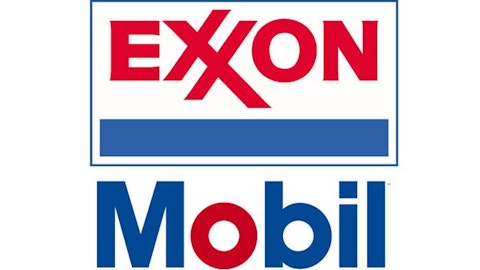Are the anti-GMO protests really going anywhere? Activist voices against genetically modified organisms might have pitched louder in recent months, but farmers don’t seem to be paying much heed.
According to the U.S. Department of Agriculture’s latest data, genetically modified seeds comprised a whopping 90% of the total corn acreage planted this year. That’s up 2 percentage points from last year. Furthermore, seed varieties that were both pest- and herbicide-resistant covered 71% of the acreage, a significant jump from 52% covered last year.

Monsanto Company (NYSE:MON)’s genetically modified seeds at work. Image source: Company website
If anyone’s making money hand over fist, it’s the companies that are behind the altered seeds. Monsanto Company (NYSE:MON)‘s latest quarterly report is proof.
Despite relatively cool weather and the resultant delayed start to the planting season this year, Monsanto Company (NYSE:MON) sold as many corn seeds in its last quarter as it had a year ago, when planting got off to a flying start. Its third-quarter corn seed and traits sales were flat at $1.5 billion year over year, suggesting solid demand for its products. Encouraged, Monsanto Company (NYSE:MON) is even aiming for record corn volumes for the full year.
Watch out for E I Du Pont De Nemours And Co (NYSE:DD) and Syngenta AG (ADR) (NYSE:SYT), which will release quarterly numbers later this month. E I Du Pont De Nemours And Co (NYSE:DD) recently lowered its second-quarter earnings guidance, but that’s because of the delayed planting and has nothing to do with GMOs. In fact, its engineered seeds are selling well, as evidenced by the 14% year-over-year jump in its first-quarter sales from the agriculture business. If the companies report good seed sales in their upcoming results, it might as well confirm the growth of the GMO story.
Yet when it comes to controversial issues such as GMOs, there’s much more to it than a couple of quarterly numbers. The greater percentage of genetically modified seeds planted in the U.S. this year could give the seed companies a compelling reason to increase research and development spending on biotechnology, thereby boosting the GMO business substantially, especially since the USDA seems more than happy to help. There were several cases in recent months in which the government favored Monsanto Company (NYSE:MON). Earlier this year, the USDA also approved Syngenta AG (ADR) (NYSE:SYT)’s corn trait, Agrisure Duracade, which is the company’s fourth corn trait in six years and should hit the markets next year.
But the bigger news is that it’s not just the U.S. where genetically engineered seeds are harvesting a success story. Nor is it restricted to corn. In what could change the dynamics of farming in Brazil, China has agreed to import three new GE soybean varieties from the nation. China alone imports nearly 70% of the soybeans grown in Brazil.
Agriculture-specialist consulting company Celeres projected (link opens a PDF) the area covered by GM crops in Brazil to increase 14% in the crop year 2012-2013, with soybeans taking the lead in adopting the technology. Nearly 89% of the total planted soybean area is expected to belong to the GM category. With the most populous country favoring GM crops, Brazilian farmers might be inclined to buy more of the altered seeds. Meanwhile, Monsanto Company (NYSE:MON) and the rest can easily laugh all the anti-GMO chatter off.





